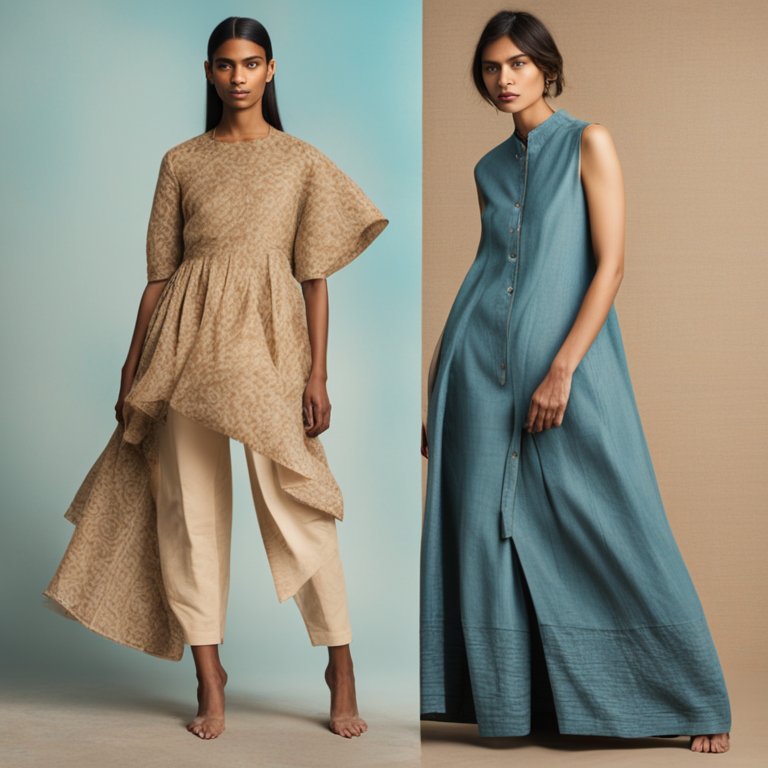Introduction:
In recent years, there has been a noticeable shift in the fashion industry towards sustainability and eco-friendly practices. India, known for its rich history of craftsmanship and textile heritage, is also embracing this trend with open arms. The rise of sustainable fashion in India is not only a reflection of changing consumer preferences but also a response to the environmental concerns plaguing the industry. With innovative designs and a focus on ethical production, eco-friendly trends are taking over the market and reshaping the way we approach fashion.
Subheadings:
1. The Importance of Sustainable Fashion:
The fashion industry is one of the most polluting industries in the world, with a significant impact on the environment. From water pollution to the use of harmful chemicals, traditional fashion practices have taken a toll on our planet. Sustainable fashion, on the other hand, focuses on reducing this impact by using eco-friendly materials, ethical production practices, and promoting recycling and upcycling.
2. Eco-Friendly Fabrics and Materials:
One of the key aspects of sustainable fashion is the use of eco-friendly fabrics and materials. In India, we are seeing a rise in the popularity of organic cotton, bamboo, hemp, and other natural fibers that are environmentally friendly and ethically sourced. These materials not only help reduce the carbon footprint of the fashion industry but also provide consumers with high-quality, durable products.
3. Ethical Production Practices:
In addition to using sustainable materials, many Indian fashion brands are also focusing on ethical production practices. This includes fair wages for workers, safe working conditions, and transparency in the supply chain. By promoting ethical production, these brands are not only ensuring the well-being of their employees but also building trust with consumers who are increasingly conscious of the social impact of their purchases.
4. Upcycling and Recycling:
Another trend that is gaining momentum in the sustainable fashion industry in India is upcycling and recycling. Many designers and brands are transforming old or unused materials into new garments, accessories, and home goods. This not only reduces waste but also adds a unique and creative element to their products. By promoting upcycling and recycling, these brands are showing that sustainability can be both stylish and innovative.
Tips for Embracing Sustainable Fashion:
1. Look for brands that are transparent about their production practices and use eco-friendly materials.
2. Consider renting or borrowing clothes for special occasions instead of buying new.
3. Invest in high-quality, timeless pieces that will last for years to come.
4. Support local artisans and craftsmen who use traditional, sustainable techniques.
5. Learn how to care for your clothes properly to extend their lifespan and reduce the need for frequent replacements.
Conclusion:
The rise of sustainable fashion in India is a positive sign of change in the fashion industry. By embracing eco-friendly trends and adopting ethical production practices, Indian fashion brands are leading the way towards a more sustainable future. As consumers become more conscious of the environmental and social impact of their purchases, the demand for sustainable fashion is only expected to grow. By supporting brands that are committed to sustainability, we can all play a part in reducing the environmental footprint of the fashion industry and creating a more ethical and eco-friendly fashion landscape.
👉 [Best Deals on Amazon!](https://amzn.to/abcd) | [Flipkart](https://fkrt.it/xyz123)
